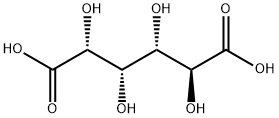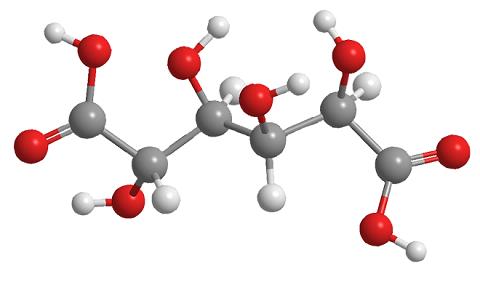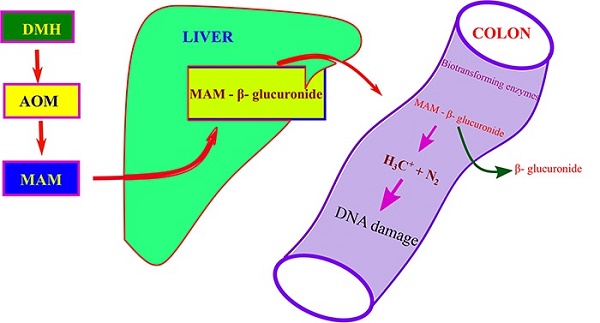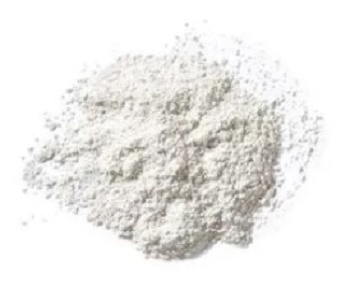D-Glucaric acid: biological functions and applications
General Description
D-Glucaric acid is a naturally occurring compound found in fruits and vegetables that plays vital roles in biological processes. It acts as an inhibitor of beta-glucuronidase, facilitating detoxification and reducing the risk of cancer development. Additionally, D-Glucaric acid regulates cholesterol metabolism, potentially aiding in cardiovascular disease prevention. It promotes liver health by enhancing detoxification through bile production. Its antioxidant properties protect cells from oxidative damage, contributing to overall cellular health and potentially addressing age-related diseases. With its unique properties, D-Glucaric acid holds promise in clinical applications for cancer prevention and control. Incorporating D-Glucaric acid-rich foods or considering supplementation may enhance the body's natural defense mechanisms. However, further research and clinical studies are necessary to fully harness its therapeutic potential.

Figure 1. D-Glucaric acid
Biological functions
D-Glucaric acid is a naturally occurring compound that plays a vital role in biological processes. It is primarily found in fruits and vegetables, such as oranges, apples, and broccoli. This acid has gained significant attention due to its potential health benefits and therapeutic properties. One of the notable biological functions of D-Glucaric acid is its ability to act as an inhibitor of beta-glucuronidase, an enzyme involved in the detoxification process. By inhibiting this enzyme, D-Glucaric acid assists in eliminating toxins and carcinogens from the body, reducing the risk of cancer development. Furthermore, D-Glucaric acid has been shown to play a role in regulating cholesterol metabolism. Studies have demonstrated that it can reduce cholesterol levels by inhibiting an enzyme called cholesterol synthesis. This effect may contribute to the prevention and management of cardiovascular diseases. Another biological function of D-Glucaric acid is its involvement in supporting liver health. It promotes liver detoxification by enhancing the excretion of harmful substances through bile production, thus aiding in the elimination of toxins from the body. Moreover, D-Glucaric acid exhibits antioxidant properties, which help protect cells from oxidative damage caused by free radicals. This antioxidant activity contributes to overall cellular health and may have implications for various age-related diseases. In conclusion, D-Glucaric acid plays a significant role in various biological processes, including detoxification, cholesterol regulation, liver health, and antioxidant protection. Further research is ongoing to explore its potential applications in promoting human health and disease prevention. 1
Applications
D-Glucaric acid has shown promising clinical applications due to its unique properties and potential health benefits. It is a natural, non-toxic compound produced in small amounts by mammals, including humans. In the human body, D-glucaric acid and its derivative, D-glucaro-l,4-lactone, play important roles in the detoxification process. One significant clinical application of D-glucaric acid is its ability to inhibit beta-glucuronidase, an enzyme involved in the breakdown of glucuronide conjugates. Elevated levels of beta-glucuronidase activity have been associated with an increased risk of various cancers, particularly hormone-dependent cancers like breast and prostate cancer. By inhibiting this enzyme, D-glucaric acid helps prevent the hydrolysis of glucuronide conjugates and promotes the detoxification of carcinogens and tumor promoters. Moreover, D-glucaric acid has been found to alter steroidogenesis and the hormonal environment in target organs. This can have implications for controlling different stages of the carcinogenic process. Animal models have provided evidence supporting the potential use of D-glucaro-1,4-lactone (a derivative of D-glucaric acid) and D-glucaric acid salts, known as D-glucarates, in preventing cancer development. Additionally, D-glucaric acid has been found in various fruits and vegetables, with higher concentrations found in grapefruits, apples, oranges, and cruciferous vegetables. This suggests that incorporating D-glucaric acid-rich foods into the diet or considering supplementation with D-glucarates may aid in promoting the body's natural defense mechanisms against carcinogens and tumor promoters. In conclusion, D-glucaric acid holds promise in clinical applications related to cancer prevention and control. Its ability to inhibit beta-glucuronidase, alter steroidogenesis, and promote detoxification makes it a potentially valuable compound in reducing the risk of cancer development. Further research and clinical studies are needed to fully understand and harness its therapeutic potential. 1, 2
Reference
1. Zótaszek R, Hanausek M, Kiliańska ZM, Walaszek Z. Biologiczna rola kwasu D-glukarowego i jego pochodnych; potencjalne zastosowanie w medycynie [The biological role of D-glucaric acid and its derivatives: potential use in medicine]. Postepy Hig Med Dosw (Online). 2008 Sep 5;62:451-462.
2. Walaszek Z. Potential use of D-glucaric acid derivatives in cancer prevention. Cancer Lett. 1990 Oct 8;54(1-2):1-8.
Related articles And Qustion
Lastest Price from D-Glucaric acid manufacturers

US $10.00/KG2025-04-21
- CAS:
- 87-73-0
- Min. Order:
- 100KG
- Purity:
- 99%
- Supply Ability:
- 100 mt

US $0.00-0.00/mg2025-04-16
- CAS:
- 87-73-0
- Min. Order:
- 5mg
- Purity:
- 95%+
- Supply Ability:
- 1000mg



